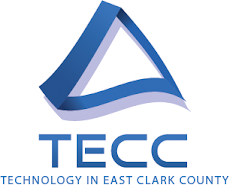There's a worldwide IT talent and skills shortage, according to the IT Governance Institute's just released massive study, "IT Governance Global Status Report." The study can be downloaded at its Web site, www.itgi.org.
The most severe IT-related problems facing CIOs and CEOs worldwide are insufficient staff and inadequate staff skills, problems delivering IT services, high IT costs relative to ROI and problems with outsourcers. Thirty-eight percent were experiencing problems with inadequately skilled staff and 58 percent with too few IT staff. The latter is a big jump from 35 percent in 2005. (It doesn't help, here in the US and Canada, that technology training spending is inching up by only 5.3 percent according to our new IT Spending Survey, and a mere 2.7 percent at companies over $1 billion in revenues.) The ITGI's findings indicate that IT labor costs will increase, whether that labor is obtained from full-time workers or outsourcers. Our own research explains why so many IT workers who become unemployed stay unemployed: CIOs are unwilling to invest in the training that's needed to move them to new roles or work with new technologies.
There's plenty of other interesting data from 749 CEOs and CIOs on 23 countries on every continent but Antarctica. Here's the report's executive summary, with some additional information taken from other parts of the report, and some of my own comments thrown in:
1. Although championship for IT governance within the enterprise comes from the C-level, in daily practice, IT governance is still very much a CIO/IT director issue. The few non-IT people in the sample have a much more positive view of IT than do the IT professionals themselves.
2. The importance of IT continues is increasing - 63 percent now say it's "very important" to strategy, up six points from 2005 and 11 from 2003. In North America, the figure is 60 percent. (Gartner's top analysts make the same argument IT also appears regularly or always on board agenda's at 70 percent of respondents' companies.
3. Self-assessment regarding IT governance has increased and is quite positive. There's been a huge jump in capability here: 54 percent gave their company a positive or very positive rating in the new survey, up to a 16 point increase from the 2005 study.
4. Communication between IT and users is improving, but slowly. Fifty -nine percent of IT departments always or regularly notify business executives about potential business opportunities they've uncovered. That's a lot of lost opportunity - both for business, and for CIOs and IT departments to improve their reputation.
5. There is still substantial room for improvement in the alignment between IT governance and corporate governance--as well as for IT strategy and business strategy. Just 19 percent say alignment between IT strategy and business strategy is very good.
6. IT-related problems persist. While security/compliance is an issue, people are the most critical problem.
7. Good IT governance practices are known and applied, but not universally.
8. Organizations know who can help them implement IT governance, but appreciation for the available expertise and delivery capability is only average.
9. Action is being taken or plans are underway to implement IT governance activities. A large increase is evident when compared to the 2006 report.
10. Organizations use the well-known frameworks and solutions.
11.COBIT awareness has exceeded 50 percent, and adoption and use remain around 30 percent.
The Institute is the research branch of ISACA, a not-for-profit association concerned with IT governance and auditing.














No comments:
Post a Comment